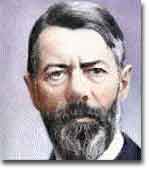
/Max-Weber-Hulton-Archive-Getty-Images-58b88d565f9b58af5c2d9a2e.jpg)
MAX WEBBER CONTRIBUTION TO SOCIOLOGY PROFESSIONAL
In 1888 he joined the " Verein für Socialpolitik", the new professional association of German economists affiliated with the historical school, who saw the role of economics primarily as the solving of the wide-ranging social problems of the age, and who pioneered large-scale statistical studies of economic problems. In the years between the completion of his dissertation and habilitation, Weber took an interest in contemporary social policy. Having thus become a " Privatdozent", Weber was now qualified to hold a German professorship. Two years later, Weber completed his " Habilitationsschrift", The Roman Agrarian History and its Significance for Public and Private Law. He earned his law doctorate in 1889 by writing a doctoral dissertation on legal history entitled The History of Medieval Business Organisations. Throughout the late 1880s, Weber continued his study of history. In 1886 Weber passed the examination for " Referendar", comparable to the bar association examination in the British and American legal systems. For the next eight years of his life, interrupted only by a term at the University of Goettingen and short periods of further military training, Weber stayed at his parents' house first as a student, later as a junior barrister, and finally as a Dozent at the University of Berlin. In the fall of 1884, Weber returned to his parents' home to study at the University of Berlin. Intermittently, he served with the German army in Strasbourg. Along with his law coursework, young Weber attended lectures in economics and studied medieval history and theology. Weber joined his father's duelling fraternity, and chose as his major study Weber Sr.'s field of law. In 1882 Weber enrolled in the University of Heidelberg as a law student. Max Weber and his brothers, Alfred and Karl, in 1879

It seemed clear that Weber would pursue advanced studies in the social sciences. At the age of fourteen, he wrote letters studded with references to Homer, Virgil, Cicero, and Livy, and he had an extended knowledge of Goethe, Spinoza, Kant, and Schopenhauer before he began university studies. Max's 1876 Christmas present to his parents, when he was thirteen years old, was two historical essays entitled "About the course of German history, with special reference to the positions of the emperor and the pope" and "About the Roman Imperial period from Constantine to the migration of nations". The young Weber and his brother Alfred, who also became a sociologist and economist, thrived in this intellectual atmosphere. Weber Sr.'s engagement with public life immersed the family home in politics, as his salon received many prominent scholars and public figures. Weber was born in Erfurt in Thuringia, Germany, the eldest of seven children of Max Weber Sr., a prominent politician and civil servant, and Helene Fallenstein. His most known contributions are often referred to as the ' Weber Thesis'. In another major work, Politics as a Vocation, Weber defined the state as an entity which possesses a monopoly on the legitimate use of physical force, a definition that became pivotal to the study of modern Western political science. In this work, Weber argued that religion was one of the non-exclusive reasons for the different ways the cultures of the Occident and the Orient have developed, and stressed importance of particular characteristics of ascetic Protestantism which led to the development of capitalism, bureaucracy and rational-legal state in the West. His most famous work is his essay The Protestant Ethic and the Spirit of Capitalism, which began his work in the sociology of religion.

His major works deal with rationalisation in sociology of religion and government, but he also contributed much in the field of economics.

He was influential in contemporary German politics, being one of Germany's negotiators at the Treaty of Versailles and the member of the commission charged with drafting the Weimar Constitution. He began his career at the University of Berlin, and later worked at Freiburg University, University of Heidelberg, University of Vienna and University of Munich. Maximilian Weber ( IPA: ) ( Ap– June 14, 1920) was a German political economist and sociologist who is considered one of the founders of the modern study of sociology and public administration. German political economist and sociologist


 0 kommentar(er)
0 kommentar(er)
